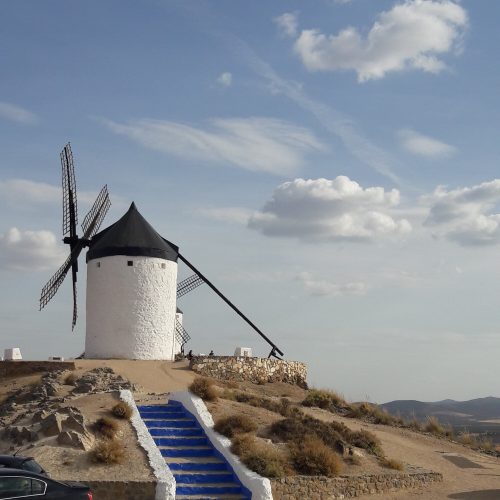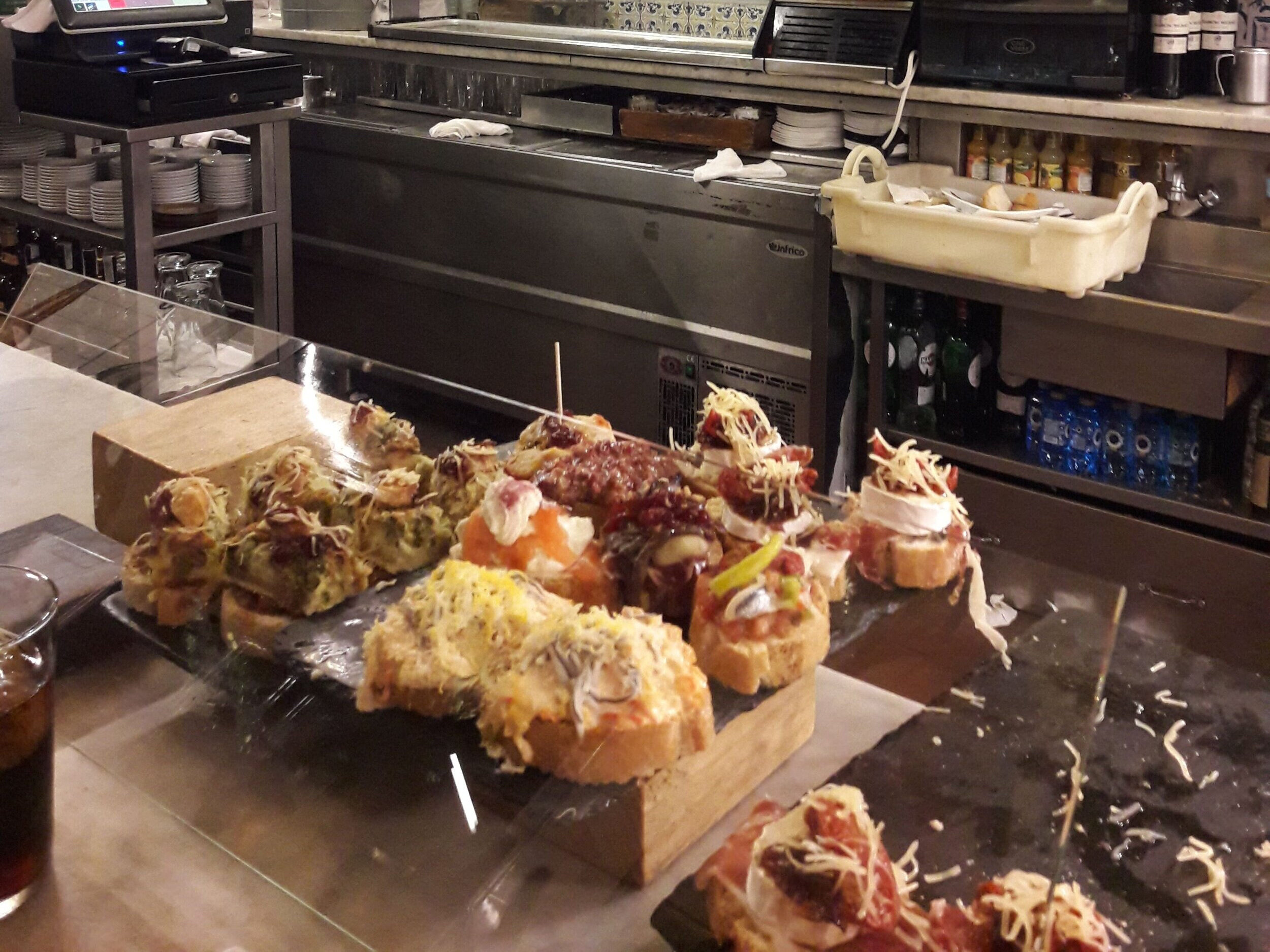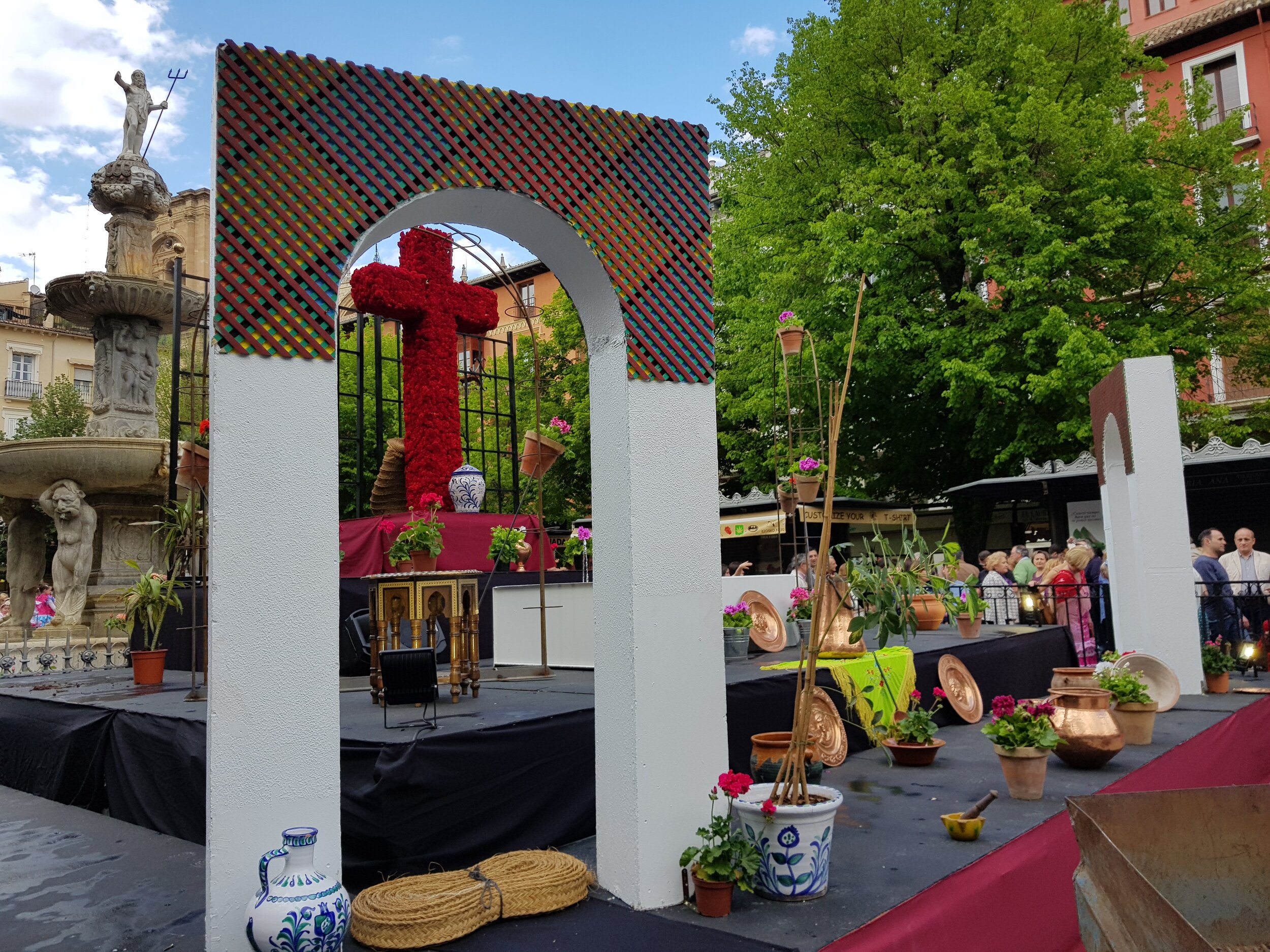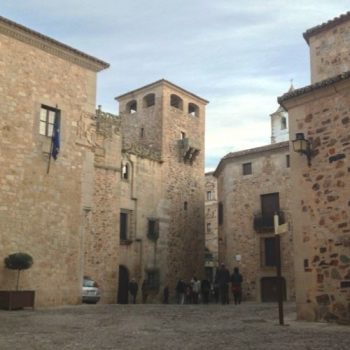
The Four Most Important Things to Know About Spanish Culture Before You Move Abroad
 Dear Katie,
Dear Katie,
You’ve seen our Instagram feed, Spain can be incredibly photogenic and awe-inspiring. The food looks delicious and often adventurous. The parties seem second-to-none. But that’s only the side of Spain you can capture in a photo. What’s much more important to understand before you decide to move somewhere is the depth of the culture behind it all. How do the people think? What do they value? How does this shine through in their everyday behaviors? Of course, culture is incredibly complex and cannot be succinctly summarized into four bullet points. Nonetheless, we have organized this article to help you understand four of the overarching cultural categories you’ll want to be aware of, an explanation of what those mean, and where you can find further information on our blog. Hope it helps!
The Food Culture
One of the first things you’ll notice when you arrive in Spain is that the average bar/restaurant is not serving food when you might expect it to be a ‘normal* time’ for lunch or dinner. This is because Spain’s typical eating schedule begins much later than many foreigners are used to.
Breakfast is not a large or important meal in the Spanish tradition, but you can get an idea of what Spaniards tend to eat to start their day in this article. The main meal of the day is lunch and this is not served until the afternoon—sometimes as early as 1pm, but often closer to 3pm. Dinner is not typically served until 9pm and generally consists of a much lighter meal. You can learn more about this schedule here.
It’s important to note that meals in Spain are not generally eaten quickly nor alone and that this is a time to spend with family (or friends) and savor your food. Time spent eating is important and it is to be enjoyed. That’s also why it’s common to see Spaniards accompanying their meals with alcohol, although this is not generally in excess but rather one or two glasses of a local wine or favorite beer. A Sunday midday comida (or lunch) is an especially popular family gathering and this weekend meal could last well into the evening hours! You can read more in detail about that here, but it suffices to say that if you are invited to a Sunday comida it’s best not to make any other plans for the day.
 Popular Spanish dishes vary quite a bit depending on where in the country you find yourself but the common thread of a Mediterranean Diet remains consistent. An explanation of the basic ingredients, such as fresh vegetables and fish, and practices, such as using extra virgin olive oil instead of vegetable oil or butter, can be found in more depth in our articles on the Mediterranean Diet and Spanish olive oil.
Popular Spanish dishes vary quite a bit depending on where in the country you find yourself but the common thread of a Mediterranean Diet remains consistent. An explanation of the basic ingredients, such as fresh vegetables and fish, and practices, such as using extra virgin olive oil instead of vegetable oil or butter, can be found in more depth in our articles on the Mediterranean Diet and Spanish olive oil.
On a final note, tapas, or small dishes of food, are indeed popular in certain regions of Spain but not everywhere. Just as you can imagine when considering how different dishes are served in different ways in your own country, the tapas culture varies from region to region. Some autonomous regions like the Basque Country serve pinxtos (essentially tapas on sticks) that you can collect yourself at the bar. Other regions, like Andalusia (and particularly the city of Granada) bring an individual (free!) tapa to your table each time you order a drink. Other regions still will require you to order your tapas or raciones (rations / larger servings) separately off the menu. Even within the same city, you will find bars/restaurants that have different norms around the tapas culture so simply be ready to learn and adjust frequently.
The Family Culture
Generally speaking, Spanish people are quite close with their families and therefore stay at home longer and don’t move so far away when they do eventually move out. It is less common to move across the country to go to a particular university or work in a different city (this is certainly changing, especially in response to the difficult job situation, but it is still not as common as it is in some other places like the US). Thus, people generally live with their family longer as well, making it totally acceptable to live with your parents throughout your university years and well into your thirties.
 Even when young Spaniards do move out on their own it’s common to return to their family home regularly for meals, especially on Sundays when the extended family may gather but often during the weekdays, too. For Dani, this became apparent when she was carpooling with other teachers during her year as an auxiliar (teaching assistant, read up here if you’re unfamiliar).
Even when young Spaniards do move out on their own it’s common to return to their family home regularly for meals, especially on Sundays when the extended family may gather but often during the weekdays, too. For Dani, this became apparent when she was carpooling with other teachers during her year as an auxiliar (teaching assistant, read up here if you’re unfamiliar).
One of the women she was getting to work with was a teacher in her early thirties who lived only a few blocks away from her. Every morning, Dani would meet her on the corner where their streets intersected (meaning that they made the rest of 10-minute walk to her car together). Nearly everyday after school, however, she would say goodbye to Dani at the garage where she parked her car and headed off into the other direction as she was having lunch at her parents’ place. Honestly, it still catches us off-guard how much Spaniards our age (and older) rely on their parents for everyday things, but this is not viewed as odd in the traditional Spanish culture.
The reality is that they simply seem to have a close-knit family unit that spans multiple generations. It’s nice to see how consistently Spaniards can rely on their parents and grandparents. For example, babysitting jobs are not the hot commodity they are in many other countries for a number of reasons. Firstly, most parents will simply take their kids with them wherever they go—even to the restaurant/bar till midnight—but secondly, if they do not take the kids with, you can rest assured they are left with los abuelos (the grandparents). We imagine this has its own implications and may lead to more familiar disagreements as to how children should be raised and disciplined as they end up spending a lot of time with their grandparents as well. Still, it seems like a system that generally works well.
The Work Culture
We’ve gone into further depth about this in our article entitled Work-to-live vs. Live-to-work but the main thing you’ll need to be aware of before moving to Spain is that the work culture will likely be more laid-back than what you’re used to. As Americans, we’ve noticed a very different mentality when it comes to work, working hours, and how important one’s job is here. In Spain, it is common to work-to-live, which we define as doing your job up to the expected standard but not putting forth any special effort to go above and beyond what is asked.
This is not because Spaniards are not hardworking but, rather, it is because they place their value and importance elsewhere and their job is not their whole life or identity. Instead of the rat race mentality we were familiar with in the US—where people often work consistently long hours for the promise of a relaxing retirement someday—, Spaniards focus a bit more on the present and value having time to rest and to spend with their family NOW. This translates to different business hours, longer holidays, and more breaks throughout the work day.
 Just as we mentioned you will have to adjust to the different timetable when it comes to eating, it will probably take some time for you to get used to business hours as well. This affects you not only if you will be working in a Spanish institution but for all aspects of your life like buying groceries or doing your banking. Outside of large cities, it is traditional for all businesses to close on Sunday which means that (unless you want to pay a lot extra to purchase something at your local convenience store) you’ll want to head to your supermarket or frutería before closing on Saturday (which may be at midday for the smaller establishments).
Just as we mentioned you will have to adjust to the different timetable when it comes to eating, it will probably take some time for you to get used to business hours as well. This affects you not only if you will be working in a Spanish institution but for all aspects of your life like buying groceries or doing your banking. Outside of large cities, it is traditional for all businesses to close on Sunday which means that (unless you want to pay a lot extra to purchase something at your local convenience store) you’ll want to head to your supermarket or frutería before closing on Saturday (which may be at midday for the smaller establishments).
Additionally, offices like banks and the local government (the foreigner’s office, civic centers, townhall, etc) tend to only be open until 2pm, or lunchtime (another perk of the much sought-after civil servant job posts, read more about that here). Many other businesses, such as family-run shops and pharmacies, will close for lunch (again, around 1:30 or 2pm) and reopen after the ‘siesta period’ ends (generally around 4 or 5pm). Finally, you will want to be prepared for the business closings during holidays, often including the entire month of August! Of course, supermarkets and other staples of everyday life will remain open during this month however it is not at all unusual for family-run businesses to take the time off for their annual vacation nor for offices to have limited hours during this time, resulting in much slower processes. Learn more about why and what this means in this article.
The Celebration Culture
This last point about August holidays brings us to our final category which we could simply not leave out—the many, many celebrations! Spain has a reputation of throwing good parties and the fact that they have SO many local and national bank holidays is probably one of the main reasons. Don’t believe us? Check out our article about different celebrations or this list of Spanish bank holidays to get an idea of what we mean. Personally, it seems that this tradition is a bit of a convergence of all the above points: Spaniards value time off of work to enjoy with their families, celebrate life, and eat good food.
When we look at the reasoning behind so many festivals, ferias, and other bank holidays we cannot avoid considering Spain’s ties to the Catholic tradition. While the average Spanish citizen today would probably not identify as being deeply Catholic, the implications of this religion is still very present. Simply take a look as the kinds of celebrations Spain observes and you will find that the most important ones revolve around the Catholic calendar: Nochebuena (Christmas Eve), Día de los Reyes Magos (Day of the Three Kings), Semana Santa (Holy Week), and a variety of patron saint days, such as San Isidro, observed in varying cities.
 And we haven’t even explored the idea of ferias, or local fests, yet! Still, the Corpus Cristi feria in Granada is clear indication that even though these festivals are no longer directly tied to religion in contemporary practices, the days on which they fall are indeed related to their religious implications. As we explain in our article Catholic but not Catholic, it is now difficult to separate what is considered religious and what is considered simply cultural in Spain’s celebrations.
And we haven’t even explored the idea of ferias, or local fests, yet! Still, the Corpus Cristi feria in Granada is clear indication that even though these festivals are no longer directly tied to religion in contemporary practices, the days on which they fall are indeed related to their religious implications. As we explain in our article Catholic but not Catholic, it is now difficult to separate what is considered religious and what is considered simply cultural in Spain’s celebrations.
However you choose to see the many Spanish celebrations, the truth is that this country has a lot of parties and observes many different bank holidays. So be prepared to be frustrated from time to time when you didn’t know it would be a local holiday and now you can’t do your shopping or get hot water in your apartment because butanos are not being delivered. There may be a few headaches as you adjust but also be prepared to explore these many different festivals and revel in the opportunity to get to know Spain’s rich culture on a regular basis.
 There are so many facets of the Spanish culture that we feel are important to understand as you prepare to move abroad and this article only begins to scratch the surface. Still, we believe that the greatest teacher is experience so take the plunge and get out there in order to start learning about the culture on your own. As long as you approach the new culture with an open mind, we’re sure you’ll have a positive experience! And, as always, if there’s anything specific you’d like us to help explain please drop a comment below.
There are so many facets of the Spanish culture that we feel are important to understand as you prepare to move abroad and this article only begins to scratch the surface. Still, we believe that the greatest teacher is experience so take the plunge and get out there in order to start learning about the culture on your own. As long as you approach the new culture with an open mind, we’re sure you’ll have a positive experience! And, as always, if there’s anything specific you’d like us to help explain please drop a comment below.
Sincerely,
Spain
*‘Normal’ is, of course, a relative term and examining our perspectives through the lens of cultural competences can help us understand why.





2 Comments
Reme@homegenie.es
It is always interesting to read how a foreigner sees you. Thanks for the respectful approach you give to all of your posts, and also, for demystifying some long standing clichés.
If any of your readers in the Costa Blanca need help with house duties, we have built http://www.homegenie.es, a one-stop shop thought to make the expat’s life easier. Hope it is as useful as your blogposts are to us.
Sincerely,
Remedios Amorós.
Sincerely, Spain
Thank you so much for your feedback, Remedios! It’s great to hear that you feel our posts are respectful and present a balanced perspective- it’s definitely something we aim for in each post (especially ones like this one). If you ever have anything more to add (or changes you would like to see us make if something does not seem fairly represented), please do not hesitate to reach out.
Although we are not located in the Costa Blanca and cannot try out your service personally, we do follow your account on Instagram and can attest that the cleaning and cultural tips you provide there are great! Keep up the good work 🙂